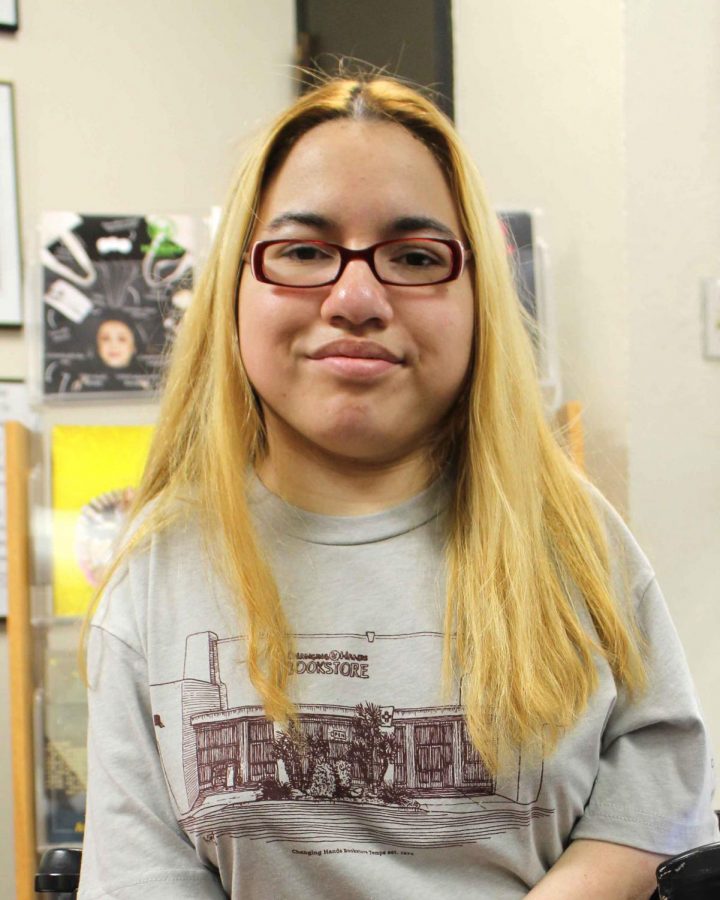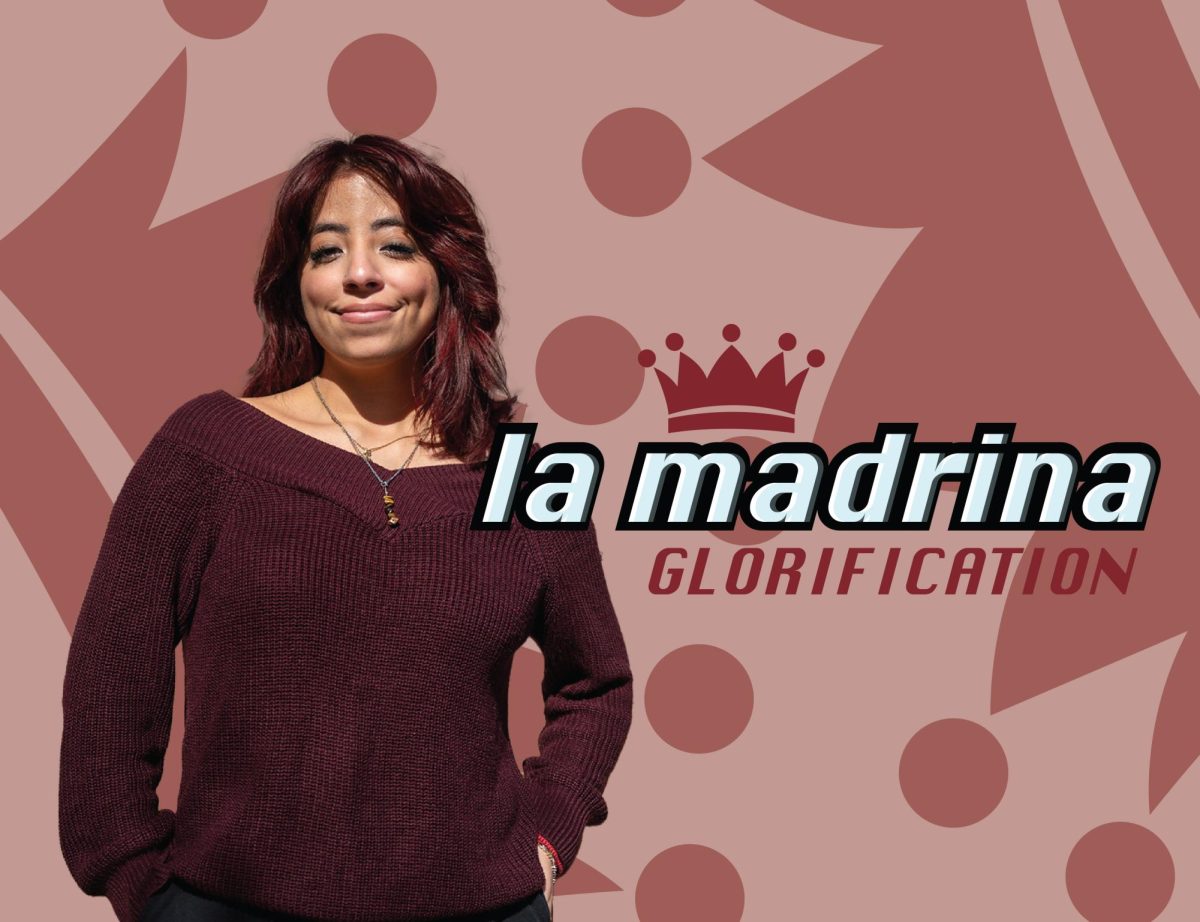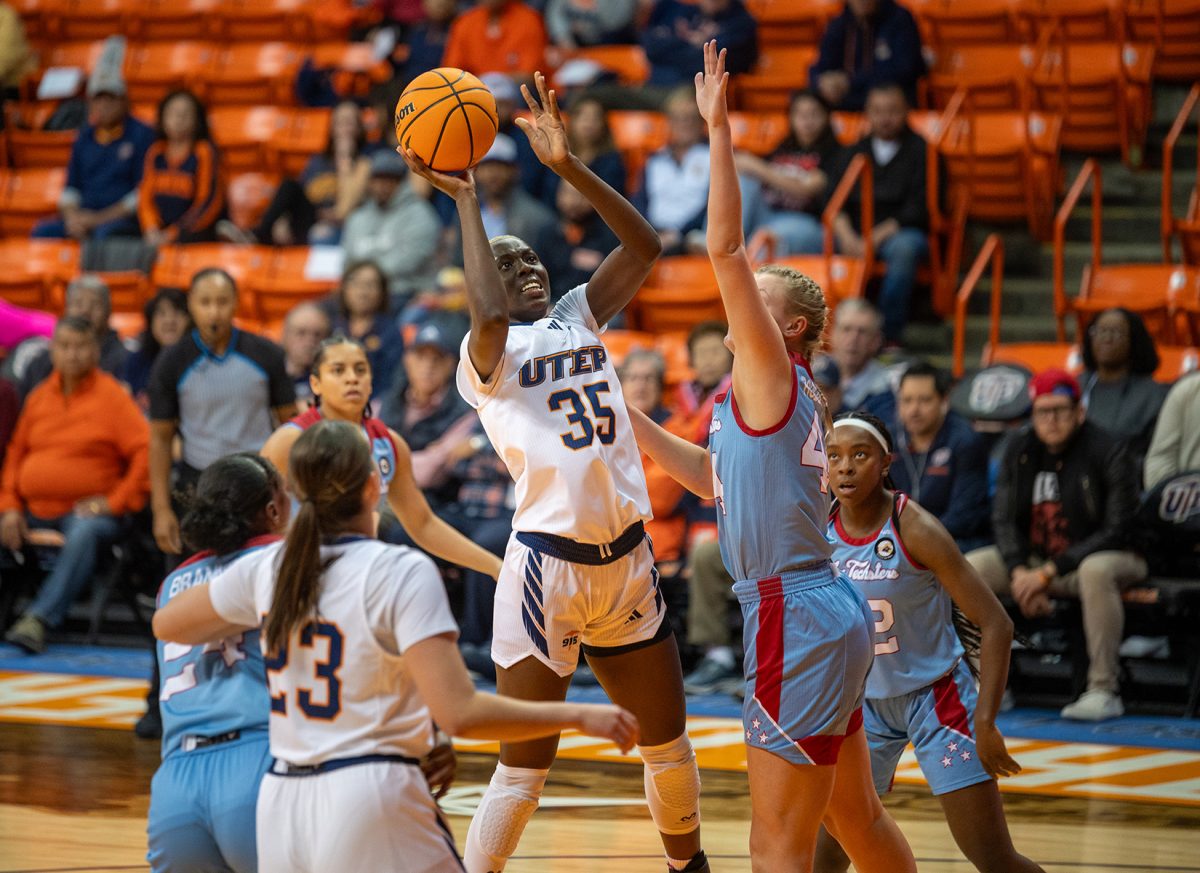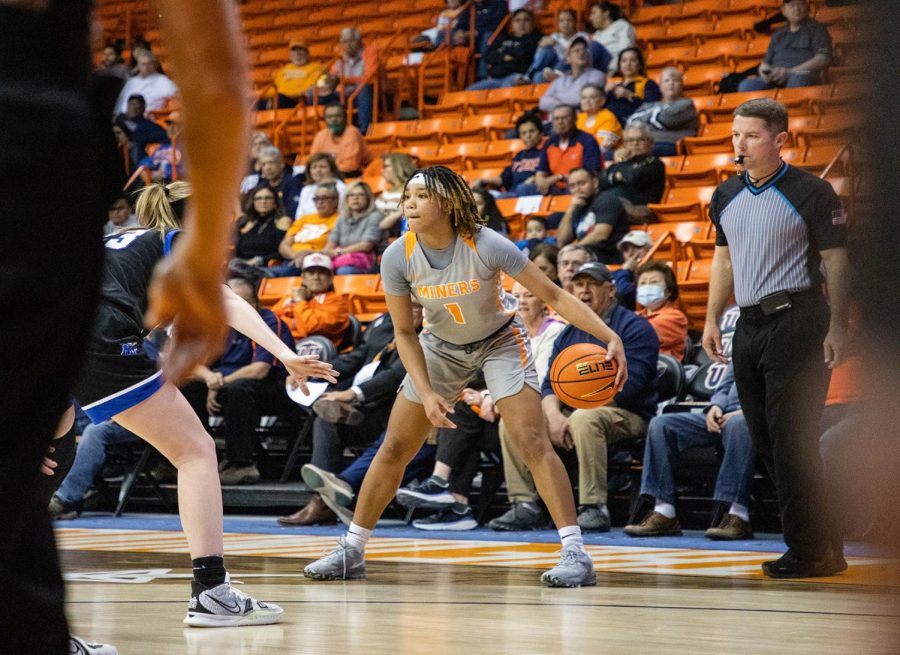Ableism: discrimination or prejudice against individuals with disabilities. This is Merriam-Webster’s definition of the term, but ableism is more than just discrimination and/or prejudice. It’s the innate belief held by society that abled people are more worthy of human respect, dignity and autonomy than disabled people. The casual discrimination and prejudice disabled people face has never been more apparent to me than in my early 20s, and more specifically, at UTEP.
This is not going to be a column that bashes UTEP, because the university has been wonderful to me and I’ve met people who will be in my life for a long time. This is a column about the bad moments in between the good ones, the patronizing smiles in between the genuine ones, and the “are you OK?” questions in between people minding their own business.
To put it in the mildest way possible, I had the weirdest day at UTEP recently. It seemed like everyone got the memo that there was this girl in a wheelchair at campus and they must all pitch in to help, even if this disabled girl didn’t request any assistance. Again, autonomy doesn’t exist for disabled people. I get on the elevator and press G all by myself when a girl walks in, presses her floor number, and asks where I would like to go, seeing full well that I had pressed my floor already. As we stop at G, before the elevator door opens she said, “This is G, OK?” in the most patronizing voice possible.
I get out and let it go because as a disabled person, you’re conditioned to let comments like this go. “They mean well and were just trying to be nice,” is what we have always heard, even when it’s our dignity and self-respect on the line.
Later that day, I went to take a test at the CASS office. Let me say right away that everyone there is lovely and deserves every praise. This isn’t about what happened inside the office; it’s what happened outside. After I took my test, I had to wait for the testing center official to come give me my scores. To put it plainly, it was a very, very long and tedious wait. I didn’t want to have to wait over an hour in a closed testing room, so I decided to wait outside. I alternated between staying close to CASS’s door and the lounge area in front of the building. I drifted off into space and thought about nothing because when you’re a college student, semi-laziness is a luxury. However, I forgot that I was physically disabled, and when you’re physically disabled, drifting off into space and choosing to be idle means you’re incompetent and need to be looked out for 24/7. The amount of people that interrupted me spacing out, and asked if I needed help, if my chair needed to be pushed (really?), if I’m sure I didn’t need to be pushed are too many to count. All I needed was an empty cup next to me and I could have made some good money.
As bad as these experiences have been, nothing might ever top the awful three days I had as an incoming freshman.
I was trembling with fear as I wheeled into Centennial Plaza for new student orientation in July 2018. I was a 22-year-old girl trying out this college thing for the first time after failing multiple times at becoming a professional writer without a degree and I didn’t want to mess anything up. I knew I would feel like an outsider at orientation because of my age; everyone there had probably just graduated from high school, but it never occurred to me that I would be made to feel less than because of my disability.
Arriving at the plaza, I was on my way to check-in when I was literally bombarded with UTEP students getting my welcome packet for me, checking me in and escorting me to the tables that represented different UTEP organizations and societies. I want to make clear that I never once asked these students for help and you can bet that I did not want to be escorted during my first minutes at my new campus as if I were Queen Elizabeth. They saw my wheelchair and they saw someone in need. You can say that they only had good intentions in helping me, but the act of assisting disabled people without consent is rooted in the idea that disabled people need to be watched out for. If they wanted to treat me with the respect I deserved, they could have either asked me if I needed help or not said anything unless I asked for their assistance.
Going into the official welcome pep rally, I was greeted by loud music and tons of people at the steps. I was, obviously, separated from my fellow incoming freshman because I couldn’t access the steps of the plaza. I really didn’t care about that part because being too social with too many strangers at once is not really my thing, (although they could have found a completely accessible location to hold this pep rally which would have given me the choice of where to sit, like everyone else). What got me nervous, anxious and angry was the extroverted-ness of it all. I get that these things are supposed to be upbeat and fun, but let’s get real, not everyone felt comfortable at this pep rally.
I’m not only in a wheelchair, but I also experience social anxiety. While I was the only new freshman in a wheelchair during orientation, I can assure you that I was not the only socially anxious person there. I saw looks of fear, awkwardness and anxiety on quite a few faces during those three, long days of what were supposed to be helping everyone get comfortable at UTEP – not just a select, extroverted group of people. It is completely obvious that whoever planned the orientation didn’t plan for disabled and/or socially anxious students. Where were the rest areas located for those who needed a break from all the chaos? Hiding in a bathroom stall doesn’t count.
The UTEP staff stressed for everyone to be social, to participate in as many groups as possible during our time here, to go to football games, to engage with the UTEP edge (clap), that they seem to have not realized that not everyone is built to do these things. There are so many invisible conditions out there that prevent certain people from being as socially engaged as UTEP wants them to be. Instead of accepting that and making orientation more inclusive towards those who don’t fit the mold of a jock, popular, social butterfly, they want to change students into who the college thinks they should be. That’s not what the college experience should be; it’s about making sure students know that these tools are out there for them, should they choose to use them, and help guide them if they ask. Don’t put us into your perfectly crafted box and instead come into our boxes, learn a little something. After all, that is what college is truly for.










